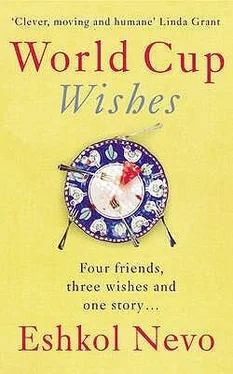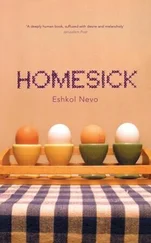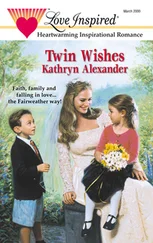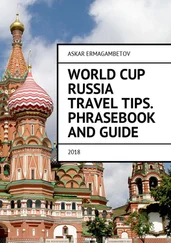But I did admit to myself that life without Ofir Zlotochinski would definitely be a lot more boring: without that regular Saturday night phone call when we tried to guess the headlines in the Sunday sports section. Without those phone calls that burst into the middle of our days, hey Bro, turn on the radio, there’s a new song by … Without those group outings to see bands whose names — ‘Circus Video Art’, or ‘Sunrise Jam at the Heriya Garbage Dump’ — were enough for us to know they’d be rubbish. Without those weird moments like the time he talked me into going with him to sketch nude models even though neither of us knew how to draw, or the time he asked me to sit at a table next to him and his date in a café and pretend I was reading a newspaper, then tell him later what I thought, because that was already their fifth date and he couldn’t make up his mind.
It won’t be the same without Ofir, I thought. But on the other hand, we’d been without him for almost a year. And there’s always something in us that adjusts.
*
I have an idea, Amichai said when he came back from the twins’ room. Let’s take out a personal ad titled, ‘Friend Wanted’. Under that, it’ll say: ‘Three childhood friends seeking a replacement for the fourth guy who went to live abroad.’
‘A Haifa past — essential. Love of football — an advantage’, Churchill said with a laugh.
Terrific! Ya’ara said enthusiastically. I’ll help you audition the candidates.
We’ll ask them to sing ‘Shimon My Man’, Amichai suggested. First a solo, then together with us.
We’ll check his family background, I said, faking enthusiasm. The more sisters, the better.
Ya’ara gave me a long look. I thought perhaps she was disappointed to see that there were women besides her I might be interested in.
What you guys really need, she said, is a friend with technical skills. You all have two left hands. You know what Mr Churchill, our senior attorney here, does when the sink drain is blocked?
What?
He calls me.
A mechanic, Churchill said, agreeing. We need a friend who’s a mechanic. That would really set us up.
‘A Haifa past — essential. Love of football — an advantage. Preference to mechanics’, Amichai summed up and said that in his opinion, a small ad shouldn’t cost a lot, and if we split it, it’d come to less than a hundred shekels each. And if it turned out to cost more, we could always advertise on the web, that’s free.
Go for it, we told him. And perhaps we really would have taken out an ad, just because laughing about it made us feel better, if a week later, Ya’ara and Churchill hadn’t made the surprise announcement that they were getting married, and two weeks before the wedding, Ofir hadn’t made the equally surprising announcement that he, Maria and the girl were coming for the event.
THERE’S THIS DREADFUL custom of giving close friends pictures taken during the wedding and writing something warm and personal on the back. Ya’ara and Churchill were considerate enough not to do that in my case. So the only picture I have of that occasion was taken secretly by Maria’s daughter, and Ofir gave it to me, in a sealed envelope, two weeks later. I look fine in it, that’s what’s so weird. I have eyes and a nose and ears and skin and a shirt and buttons. And you could never guess what was going on inside. I’ve looked at that picture dozens of times, trying to find a sign. Lowered eyelashes. A double chin. The slightest paleness. And nothing. I’m standing with a tall cocktail glass in my hand, smiling broadly at the camera. Wishing them well.
*
The ‘alternative area’ at the wedding included two treatment beds, and was located in an excellent spot: between the buffet table and the artificial lake. Ofir, wearing loose white clothes, stood at one of the beds. Maria stood at the other, a big woman with a big smile and a big necklace of big beads on her chest. Her daughter stood at the entrance pouring strong, hot chai from a clay pitcher for everyone in the queue.
I queued like everyone else. I could have signalled to Ofir to let me go ahead of the others, but that’s not how I was brought up.
When it was my turn, Ofir pointed to his bed (I breathed a sigh of relief. I kept picturing what happened the first time Maria treated him. And I was afraid that if she treated me, the same thing would happen).
Lie on your stomach, Yuval-ji, he said. And take d-e-e-p, l-o-o-ng breaths.
You do remember that I have asthma? I asked, alarmed. This treatment is OK for people with asthma?
It’s not a treatment, he said, laying both hands gently on my back. It’s just a light massage to release tension. Looks to me like you could do with some tension release, am I right?
Yes.
*
That wedding hit me like a supersonic boom on a clear day. Usually, such things follow a certain order of events: you get to know each other. You go to parents’ houses for Friday night dinner. You spend a weekend in a cabin in the Galilee. You move in together. Raise a dog. Or a calico cat. You think seriously about splitting up. You drive the whole world mad with feigned indecision. And only then do you start making the rounds of wedding venues and caterers and fighting about the guest list.
And here — it all happened too fast. The Maccabi game ended, Ofir called, and at the beginning of the conversation, Churchill mentioned that he had something important to say, and that he was really glad Ofir had called because now he could hear the news at the same time, or at least with a delay of a second and a half, and –
So?!! we all groaned in expectation. We were sure he was going to tell us that he’d been appointed district attorney. Or that he’d shot straight up to supreme court judge.
Then he took Ya’ara’s hand. And entwined his thick fingers with her delicate ones.
And even before he spoke, an air pocket had already formed in my chest.
*
After they left, I questioned Amichai and he swore by the twins that he hadn’t known anything, and, from where she was sitting in the den, Ilana the Weeper said that they don’t even sound happy about the announcement, and that Churchill was too childish to get married, and it could only be that she’s pregnant and doesn’t want an abortion, and if that’s the story, then it’s very stupid of her, though not surprising, considering her personality construct, which contains an element of self-destruction.
It wasn’t until the stag night, which took place a couple of nights before the wedding, that we found out what had really happened.
Churchill didn’t want us to organise a proper party. He said it wouldn’t be the same without Ofir. Anyway, he reminded us, the last stag night we had did not end well.
That party had been for Amichai, and was in a dimly lit club in a dimly lit industrial area. From the outset, we weren’t too happy about the idea, but Amichai said that his friends at work had been there and had enjoyed it. We sat at the table reserved for us near the stage, just the four of us. We were surrounded by table after table of serried ranks, clapping enthusiastically. An ultra-Orthodox guy was standing at the back of the hall, masturbating, swaying back and forth like a lulav in the wind. We’d ordered a lot of alcohol and were trying hard to be happy for Amichai, but the music was terrible and there was something depressing about the whole thing. Especially the dancers. Their eyes were empty, their movements predictable, and the most embarrassing moment of all was when they sat on our laps and started listing their prices in business-like voices: fifty shekels to stroke their arse. One hundred for touching their breasts. Two hundred for going into the back room. We didn’t touch and we didn’t pay, so they went off to another, more profitable table. And after a quick exchange of glances, we asked for the bill, paid and got up to leave. To escape. But two bouncers blocking the exit asked us where we were going. Churchill, speaking for all of us, said it had been a great evening, thanks, but we were leaving. They said we didn’t give any money to the dancers. Churchill said we didn’t give anything because we didn’t want anything. And that’s our right. They moved a little closer to him and said that no one goes out of the club without leaving money for the dancers. They didn’t seem angry, and that’s what made the situation ominous. I remember my fists clenching in my jacket pockets and I was horrified to realise that, even though I wanted to get out of there in one piece, I wanted a fight with those guys just as much. I hadn’t felt that little thug since the Intifada, when I first discovered he was hiding inside me (and perhaps inside every man?), but I don’t want to talk about what happened then, during the Intifada. This time, Churchill conducted negotiations that led to a quiet agreement: we’d leave three hundred shekels with the bouncers and they’d let us out of there. It was either that, or a brawl, he explained afterwards in the street. And it’s not that I’m scared, but when fists start flying, you can never know how it’s going to end. The police could come and charge us all, and if they charge me, that’s the end of my job in the prosecutor’s office.
Читать дальше












